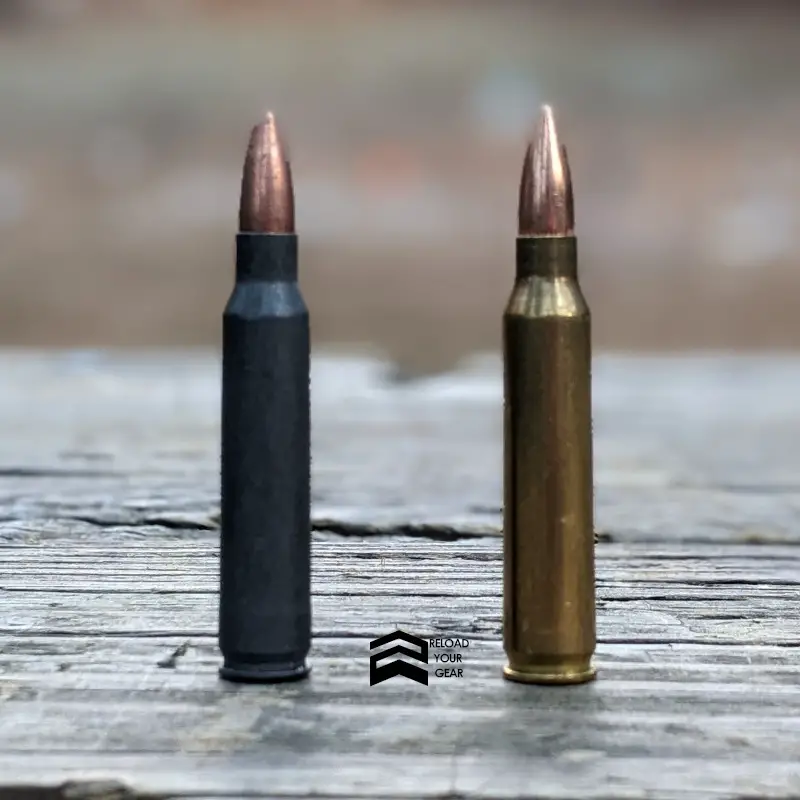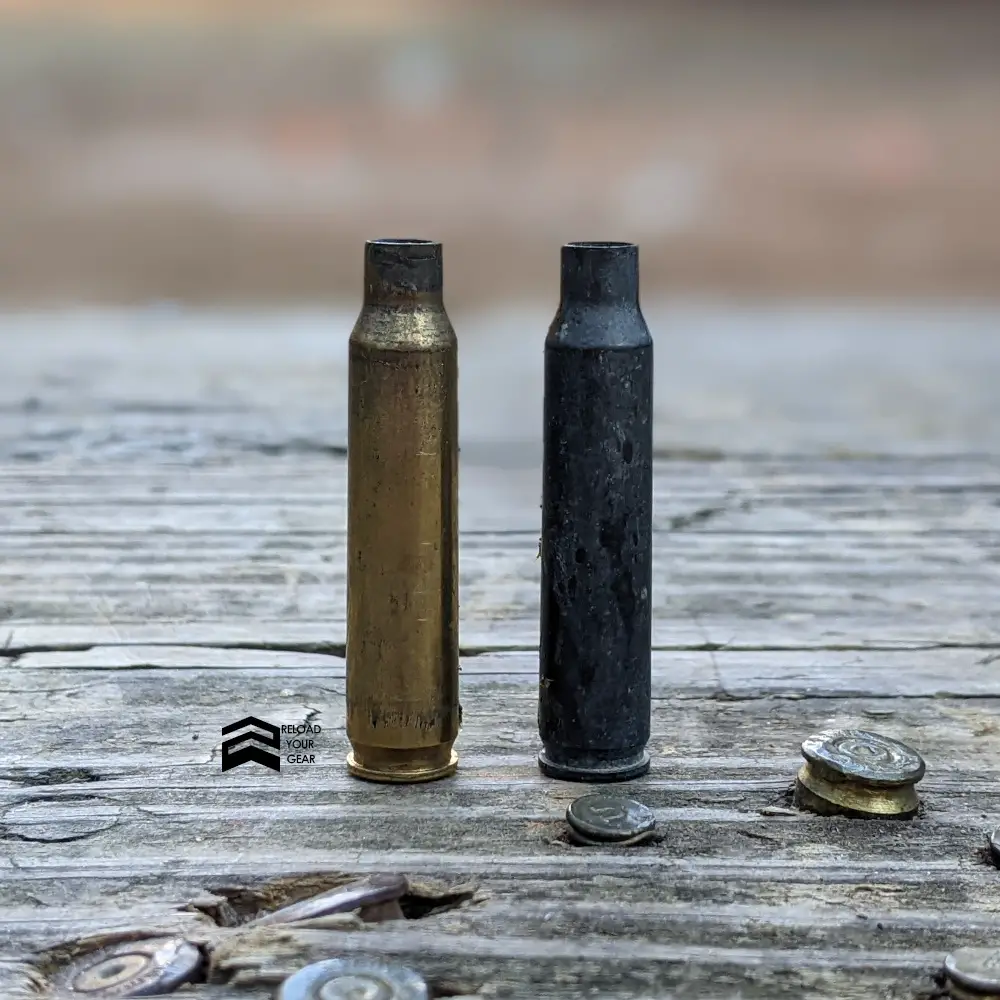
One of the many benefits of reloading your own ammo (aside from its low cost) is you can optimize its accuracy and cost as much as you possibly can for how it’s being used. The first step to reloading efficient and consistent ammo is using the right casing. In this article, we’ll focus on the differences between steel cases vs. brass cases.
Brass Case

Pros
- Safer for reloading – Brass is more malleable than steel. Malleability is the ability of metals to be shaped or rolled into a new form. This is an essential property when reloading because malleable metals such as brass are easier to reshape into their original form.
- Better seal – Since brass is more malleable than steel, it can be expanded to seal and fit your cartridge chamber snugly. Well-sealed cartridges exude less gas and minimal to no unburned gunpowder during firing. This also means you don’t have to worry about carbon build-up.
- Reusable – Because brass is more malleable, it’s less likely to crack the case when firing or reloading as it stretches from the pressure of the explosion.
Cons
- Expensive – Brass ammunition is more expensive when bought for the first time. But because of their malleability, you can reload brass casings several times until they’re worn out so you won’t be spending money on new ammo for a long time.
Steel Case
Pros
- Cheaper – Steel cases are the cheaper option for almost every shooting application. But that comes with a downside. We’ll get to that later.
- Better extraction (most of the time) – Malleability comes with a drawback. Since malleable metals are soft, this means ammo with brass cases have the tendency to get deformed during extraction. This is especially true when in weapons that require a lot of pressure to extract or those that are rechambered for straight-walled cartridges. Steel cases are better options in this criteria because they’re more robust and can handle aggressive extraction better.
Cons
- More prone to malfunctions – There will be instances when steel cases expand in your gun’s chamber unevenly and will cause a jam.
- Difficult to resize – Steel casings can still be reloaded but they require a bit more effort. This is because steel is less malleable than brass, hence intrinsically difficult to reshape once deformed.
- Most steel case brands have low-quality – Remember when we said its low price comes with a catch? This is it. The reason why they’re cheap is because most steel cases are manufactured without strictly adhering to industry standards. We’re not saying that all brands are like this, and with proper research and the right resources, you can still score some good quality steel cases out there.
FAQs
Is brass or steel case better?

We prefer brass for reloading, but the answer depends on the weapon you’re using. Brass is better in terms of sealing action, is more malleable, and can be reloaded, while steel is cheaper and extracts better. Learn more about their pros and cons above.
What is the downside to steel cased ammo?
Steel cased ammo is more prone to malfunctions because steel is naturally hard so it doesn’t expand evenly. Reshaping steel cartridge cases into their original form is also difficult because they’re not as malleable as those made of brass, so it’s less likely that you can reload steel ammo with steel cases, increasing your costs.
Does steel cased ammo hurt your gun?
No, not for any well made gun. The steel used in the cases will still be softer than the type of steel used in receivers and extractors of your gun.
Conclusion
Now that we’ve laid the differences between steel and brass, it’s your turn to ponder and decide. Remember to run some tests on the ammo you’re planning to use to establish your confidence in it and prevent any possible accidents or a malfunction in the middle of a life and death situation.
